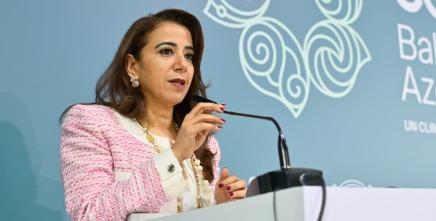Speaking at the ongoing 2024 African Economic Conference (AEC), Hanan Morsy, the deputy executive secretary and chief economist at the United Nations Economic Commission for Africa (UNECA), warned that the debt crisis afflicting the African continent has reached a critical juncture, with over 40% of African nations either in debt distress or at high risk of falling into it. Morsy stated that the situation has become so dire that many African countries are now spending more on servicing their debt than investing in critical industries and infrastructure.
“There is a need to become efficient, timely, and transparent. We need an integrated framework that includes the private sector, avoids prolonged negotiations, and ensures comparability of treatment,” Morsy said, calling for an overhaul of the common framework of the Group of 20 (G20) to address the crisis.
Diversifying Funding Sources and Channeling SDRs
Morsy advocated for African countries to explore alternative financing mechanisms, such as Samurai and Panda bond issuances, which have allowed countries like Egypt to secure much lower interest rates compared to traditional Eurobonds.
The UNECA official also highlighted the inequitable allocation of the International Monetary Fund’s (IMF) special drawing rights (SDRs), where Africa received just 5% of the $650 billion issued post-COVID-19, while wealthier nations received trillions.
“African countries must tap into alternative financing mechanisms and utilise guarantee schemes to lower borrowing costs,” Morsy said.
Building Capacity and Negotiation Power
Kevin Urama, the chief economist and vice-president at the African Development Bank (AfDB), emphasized the need for capacity building among African governments and institutions. He highlighted initiatives like the Public Financial Management Academy for Africa, which aims to modernize tax systems, widen tax bases, and digitize financial processes.
Urama also stressed the importance of unified negotiation positions, supported by data and rigorous analysis, to navigate the complex international financial systems. Additionally, he called for the rechanneling of unused SDRs from fiscally strong nations to Africa through multilateral development banks like the AfDB.
“This model ensures resources are directed to where they are most needed,” Urama said, “and underscores the broader implications of systemic reforms, including economic growth, job creation, and revenue generation.”
As the African continent continues to grapple with the debt crisis, the calls for reforms and innovative financing solutions have never been more urgent. Experts warn that failure to act swiftly could have devastating consequences for the economic future of Africa and its people.

Leave a Reply